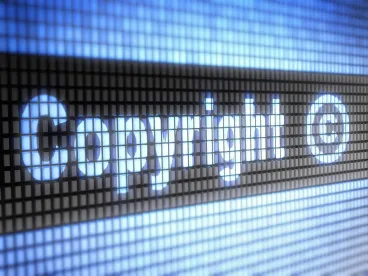The U.S. Copyright Office published a Full Report on its State Sovereign Immunity Study, announced in the wake of the U.S. Supreme Court’s decision in Allen v. Cooper. In Allen, the Court invalidated the Copyright Remedies Clarification Act (“CRCA”)—a law that purported to abrogate state sovereign immunity to copyright damages—and left states insulated from copyright infringement suits for damages. The Allen opinion also suggested that Congress consider a new law that could constitutionally achieve what the CRCA could not. In response, Senators Leahy and Tillis asked the Copyright Office to study that issue. Having done so, the Copyright Office published the findings from its State Sovereign Immunity Study on August 31, 2021.
Impetus for the Study: Allen v. Cooper
The CRCA was the last of three federal statutes to be struck down by the Court that purported to abrogate state immunity to patent, trademark, and copyright infringement damages, respectively. Not surprisingly, the Allen Court relied on the patent and trademark precedent in finding that the CRCA was unconstitutional both under Congress’ Article I power and pursuant to Section 5 of the Fourteenth Amendment. Whereas the former ruling left no room for future legislation, the latter focused on the absence of a robust Congressional record of willful infringement necessary to establish a pattern of constitutional deprivations (i.e., willful or reckless infringements by state actors).
While the Court’s ruling in Allen effectively barred copyright infringement suits for damages against the states, it indicated that new legislation to constitutionally abrogate state immunity to suits for copyright damages could potentially survive a challenge under certain circumstances. Specifically, the Court noted that new legislation, supported by a robust record of intentional (or arguably reckless) state-actor infringements, and the absence of alternative state law remedies, may suffice to constitutionally abrogate state immunity to copyright damages. The Allen ruling prompted Senators Leahy and Tillis to request that the Copyright Office study “the extent to which copyright owners are experiencing infringements by state entities without adequate remedies under state law.” This request led the Office to solicit stakeholder views on this issue as well as the viability of constitutional abrogation legislation.
The Report
Following multiple stakeholder comments and roundtables to amplify that record, the Office issued its Copyright and State Sovereign Immunity Report. The Report summarizes the Study’s findings, considers case law on copyright liability for state actors, and the various empirical data submitted by stakeholders and the copyright bar in response to the Office’s sovereign immunity study. The Report also assesses the availability, effectiveness, and viability of alternative state law remedies that copyright owners have against state infringers.
While the Report concludes that there is “little justification for immunizing” state actors, favors legislative recourse to allow damages to proceed against states, and notes that there is clearly evidence of state actor infringement, it also finds that the evidence submitted may not be sufficiently abundant or reliable to support constitutional abrogation legislation under Allen. In reaching these conclusions, the Office noted that the record of 132 willful copyright infringement suits filed after 2000 (42 of which were dismissed on sovereign immunity grounds) was much stronger than the record supporting the CRCA (which identified 12 instances of state actor infringement), but still was not enough to “conclude with certainty” that this more robust record meets “the demands of the current legal standard” espoused in Allen. This was especially true given that the reported instances of infringement were unadjudicated, with unproven allegations of willfulness as well as potential defenses such as fair use that had not been litigated.
The Report also discusses various stakeholders’ perceptions of the adverse impact that state immunity to damages has had on copyright owners as well as the need to mitigate that impact through abrogation legislation. For example, the Report recounts the American Intellectual Property Law Association (AIPLA) comment on how immunity impacts state university licensing, e.g., where state employees utilize discretionary budgets to acquire low-cost copies, avoiding formal school board ratification, and later disavow the license because state contract procedures were not followed. Additionally, the National Press Photographers Association (NPPA) comment argued that a state’s failure to investigate a work’s copyright status prior to use is sufficiently willful/reckless to support constitutional abrobation, a view that seems likely to expand the universe of willful state infringements that could support abrogation.
The Report concludes that the Office supports the availability of copyright infringement damages against states, notwithstanding uncertainty as to whether Congress can develop a record that satisfies Allen’s requisite “pattern” of intentional/reckless infringement. Acknowledging that abrogation legislation might be unattainable, the Office identified an alternative, i.e., a “waiver-based framework for infringement suits against states” wherein “a state’s ability to recover damages for infringement of its own intellectual property rights would be conditioned on its waiving sovereign immunity from infringement suits.”
Conclusions
Although states are not protected from copyright infringement suits seeking injunctive relief, many stakeholders agree that the threat of injunctive relief is insufficient to deter infringement, such that state insulation from damages has harmful effects on copyright owners and the value of their works. Most also seem to agree that there is no valid justification for insulating state actors from damages for willful infringement simply because they are state actors.
Even so, questions remain about how to navigate abrogation legislation after Allen. For example, Allen teaches that Congress needs to gather a robust record of constitutional deprivations, i.e., willful infringement by states. But that creates a “chicken and egg” problem: how can Congress be expected to gather reliable evidence as to whether infringement was willful or reckless in infringement cases against states that were never adjudicated by a court on the merits, i.e., because those cases were dismissed or deterred by sovereign immunity? Abrogation also may not have much practical benefit to copyright owners if Allen truly limits abrogation to willful infringement and leaves copyright owners the difficult task of proving willfulness.
Following the Office’s Report, and with the USPTO having recently issued a similar report with respect to patent and trademark infringement suits for damages against the states, it remains to be seen how Congress will grapple with the issue of sovereign immunity to IP damages claims.
The report can be found here: Copyright and State Sovereign Immunity: A Report of the Register of Copyrights, U.S. Copyright Office (2021).



 />i
/>i
